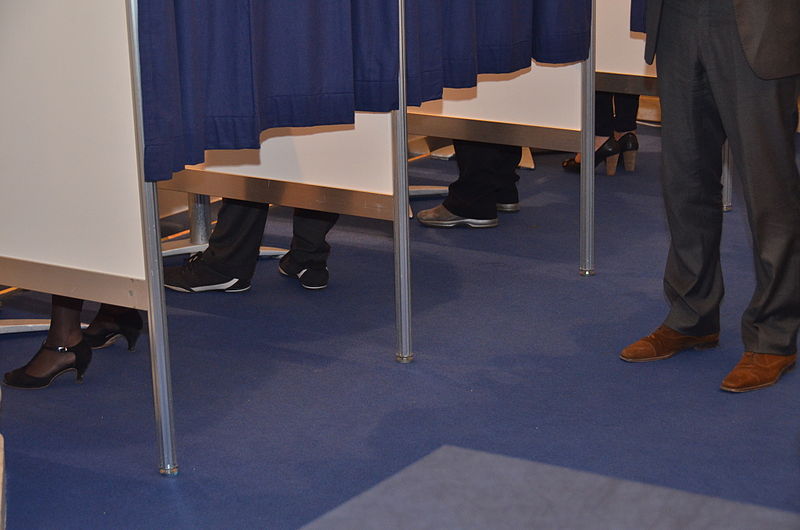2018 Georgia Ballot Initiative Cheat Sheet

Apologies for the departure from my regular theme and content, but since I had to read all these for myself, I thought I’d share my interpretation and summary. Hope you find them useful and clear. Additional links provided in case you wish to research further.
Amendment One: Sales and use tax; annual allocation of 75 percent of revenue from sale of outdoor recreation equipment for protection and preservation of conservation land; provide
This is not an increase in existing taxes, but stipulates that the state set aside $20-40 million from existing tax for land conservation annually for up to ten years from date of adoption of this amendment. Typical use would be acquisition of land for preservation, particular those important for preservation of habitat, forest, watershed, etc.
http://www.legis.ga.gov/Legislation/en-US/display/20172018/HR/238
- A “yes” vote supports amending the state constitution to authorize the legislature to dedicate up to 80 percent of revenue from the sales and use tax on outdoor recreation equipment to the Georgia Outdoor Stewardship Trust Fund to fund land conservation.
- A “no” vote opposes amending the state constitution to authorize the legislature to dedicate up to 80 percent of revenue from the sales and use tax on outdoor recreation equipment to the Georgia Outdoor Stewardship Trust Fund to fund land conservation.
Amendment Two: Business court; state-wide jurisdiction; Create
Stipulates the creation of a state court to reside over complex business cases, providing courts and judges with specialized knowledge. Unlike Georgia Supreme Court, Court of Appeals, superior, etc, these business court judges would be appointed by the governor.
http://www.legis.ga.gov/legislation/en-US/Display/20172018/HR/993
- A “yes” vote supports amending the state constitution to establish a state business court and establish procedures and rules for judicial selection, term length, and judge qualifications for the court.
- A “no” vote opposes amending the state constitution to establish a state business court and establish procedures and rules for judicial selection, term length, and judge qualifications for the court.
Amendment Three: Forest land fair market value; prescribed methodology; Remove
This amendment would alter the current definition and taxation of reimbursement for timber land in the state of Georgia. As best I can tell, this would improve how counties are reimbursed via a property tax break for said lands.
http://www.legis.ga.gov/legislation/en-US/Display/20172018/HR/51
- A “yes” vote supports amending the state constitution to allow the legislature to change the formula used to calculate the tax on forest land conservation use property and create a new land designation for commercial timberland and to establish a percentage of local grant assistance funding that could be retained by the state for administration.
- A “no” vote opposes amending the state constitution to allow the legislature to change the formula used to calculate the tax on forest land conservation use property and create a new land designation for commercial timberland and to establish a percentage of local grant assistance funding that could be retained by the state for administration.
Amendment Four: Certain Rights for Victims; suffered or harmed due to an act committed; in violation of the criminal or juvenile delinquency laws; Provide
A Georgian version of “Marsy’s Law”, this amendment would increase crime victims rights to information and status of cases, perpetrators and other factors specific to the crime they were victims of.
http://www.legis.ga.gov/legislation/en-US/Display/20172018/sr/146
- A “yes” vote supports this measure to add specific rights of crime victims, together known as a Marsy’s Law, to the Georgia Constitution.
- A “no” vote opposes this measure to add specific rights of crime victims, together known as a Marsy’s Law, to the Georgia Constitution.
Amendment Five: Sales and Use Tax; net proceeds; educational purposes; county school system; independent school systems; provide for distribution
Allows larger school systems in counties with more than one public school system (i.e. county-wide and city schools) to call for a sales tax increase without the approval of the smaller school system(s).
http://www.legis.ga.gov/Legislation/en-US/display/20172018/sr/95
- A “yes” vote supports this amendment to allow a school district or districts with a majority of enrolled students within a county to call for a referendum to levy a sales tax for education purposes.
- A “no” vote opposes this amendment to allow a school district or districts with a majority of enrolled students within a county to call for a referendum to levy a sales tax.
Referendum A: Revenue and taxation; procedure for counties following a rejection of a tax digest; establish
City of Atlanta only, creates an annual cap on property tax assessments of 2.6%. Introduced in light of the 2018 tax assessment increases (some in excess of 300%). This cap is a homestead exemption, and applies to homeowners that qualify for homestead status (owner/occupant, primary residence, current).
http://www.legis.ga.gov/Legislation/en-US/display/20172018/hb/820
- A “yes” vote supports this measure to provide for a homestead property tax exemption in certain municipalities equal to the difference between the home’s assessed value for the current year and the adjusted base year value of the home.
- A “no” vote opposes this measure to provide for a homestead property tax exemption in certain municipalities equal to the difference between the home’s assessed value for the current year and the adjusted base year value of the home.
Referendum B: Home Tax Break for People With Mental Disabilities
Extends the tax break for non-profit homes for people with mental disabilities to cases where for-profit institutions are financing the construction or renovation of said homes.
http://www.legis.ga.gov/Legislation/20172018/170681.pdf
- A “yes” vote supports this measure to clarify that an existing tax exemption for nonprofit housing for the mentally disabled can be applied to housing constructed or renovated through financing from businesses.
- A “no” vote opposes this measure to clarify that an existing tax exemption for nonprofit housing for the mentally disabled can be applied to housing constructed or renovated through financing from businesses.
Additional Information: Ballotpedia






